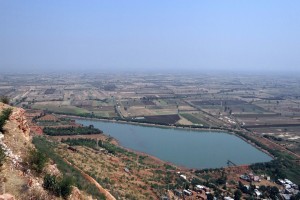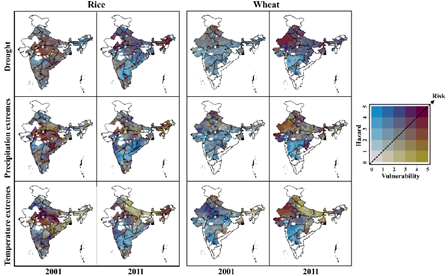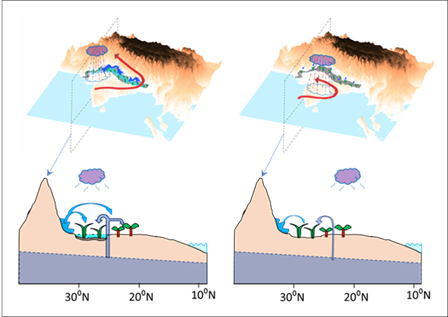

In another study conducted by Subimal Ghosh, Professor in Department of Civil Engineering and Convener at IDPCS supported by the Department of Science and Technology established that monsoon precipitation is sensitive to the choice of irrigation practices in South Asia and can help plan agricultural practices in this region. Prof. Ghosh and his climate group investigated the impact of agricultural water use on the Indian summer monsoon using a climate model. The research published in the journal ‘Geophysical Research Letters’ recently showed that monsoon precipitation is sensitive to the choice of irrigation practices in South Asia.
South Asia is one of the most heavily irrigated regions of the world, largely using groundwater, and its major summer crop is paddy which is cultivated in water flooded fields, and the study shows how such practices can influence the monsoons which form the fulcrum of this agro-based economy.

Increasing crop risk is predominantly driven by the decreasing number of farmers, and the wheat risk is also attributed to increasing minimum temperatures during the crop growing season. This study provided compelling evidence indicating that the hydro-climatic hazards related to precipitation extremes and drought are specifically alarmingly increasing the crops risk as compared to temperature extremes.
Another finding obtained from this study was extreme rainfall in recent decades in Central India has been increasing, and this is also caused by an increase in irrigation and consequent increase in evapotranspiration (the sum of evaporation from the land surface plus transpiration from plants).
The findings on irrigation-monsoon feedbacks and the agri-cartographic products will directly benefit the National Initiative on Climate Resilient Agriculture by the Government of India, the Ministry of Science & Technology stated today.





